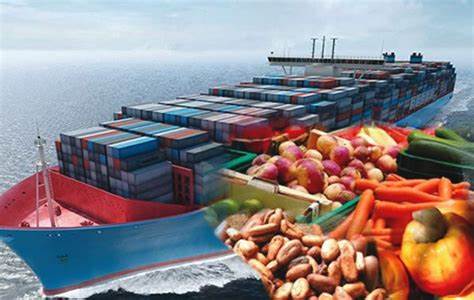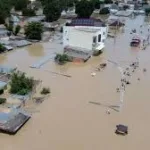The death toll from recent floods in various parts of Nigeria has hit an all time high in years, reports Prime Business Africa.
Since the end of July, the wave of flooding has been ravaging many states in the country.
Join our WhatsApp ChannelAccording to the Minister of Humanitarian Affairs, Disaster Management and Social Development, Sadiya Umar Farouq, about 603 people have lost their lives in the floods, while thousands are being evacuated from their homes.
Umar called on “State governments, local government councils and Communities to prepare for more flooding by evacuating people living on flood plains to high grounds, provide tents and relief materials, fresh water as well as medical supplies for a possible outbreak of water-borne disease.”
More than 1.3 million people have been displaced by the disaster, which has affected 33 of Nigeria’s 36 states, the humanitarian affairs ministry said on Sunday.
It is estimated that at least 3,400sq km (1,300sq miles) of land has been inundated, worsening fears of food supply disruptions.
Insecurity has already threatened food production in different parts of Nigeria especially the north, which produced much of what is consumed in the country. Security crisis has to a significant level, pushed farmers off their farm lands. This, coupled with the current war in Ukraine has made prices to jump higher as Nigeria depends heavily on imported products.
A report in Reuters quoted David Ibidapo, AFEX’s head of market data and research, as saying that the current flooding poses “a very big challenge to food security,” in Nigeria, being the worst case at least in the last decade.
In a bid to proffer solutions, President Muhammadu Buhari said “All Federal agencies dealing with rescue and disaster management have been directed to scale up response and intervention efforts to support the victims of flooding across the country” according to a post made on Twitter, on Monday 17th October 2022.
Nigeria experiences annual flooding, especially in its coastal areas, but this year’s floods are the worst in more than a decade.
It has been linked to heavy rainfalls, overflow of local rivers, and the devastating impacts of climate change. Authorities also blamed the disaster on the release of excess water from Lagdo Dam in neighbouring Cameroon.
NEMA had in a statement on September 19 said, “The Lagdo dam operators in the Republic of Cameroon have commenced the release of excess water from the reservoir by September 13, 2022.
“We are aware that the released water cascades down to Nigeria through River Benue and its tributaries thereby inundating communities that have already been impacted by heavy precipitation”
The Disaster Management minister, Farouq indicated that Nigeria will “initiate a bilateral discussion” with Cameroonian authorities in November (next month) to look into the issue of “periodic opening of the Lagdo Dam.”
















![Breaking: Tinubu Returns To Abuja After Europe Trip [Photos]](https://www.primebusiness.africa/wp-content/uploads/2025/04/Tinubu-returns-to-Abuja-Pohotos-2-720x480.jpeg)

Follow Us